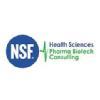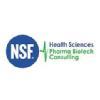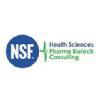Analysis & Testing - QP Module
United Kingdom, York
Course Overview:
Virtually all patient and business critical decisions made by Qualified Persons and other quality professionals are in some way made on the basis of data provided by an analytical laboratory. It is, therefore, of paramount importance that this data is accurate and can be relied upon. Hence, it is essential that these decision makers understand the basis of the analytical techniques used and their respective strengths and weaknesses. This module seeks to provide a foundation of knowledge which will enable Qualified Persons and others to judge analytical data, ask relevant questions to aid interpretation and know when to call for additional data/advice. This knowledge is also essential when auditing laboratories. The module is designed for delegates with a scientific educational background who wish to obtain a broader knowledge of Good Control Laboratory Practice (GCLP). The module may also be suitable for analytical chemists who are new to the pharmaceutical industry. For delegates who already have a deeper knowledge of analysis and testing there will be opportunities to discuss issues with the course tutors. This course is also RSC Approved.
About This Course:
Virtually all patient and business critical decisions made by Qualified Persons and other quality professionals are in some way made on the basis of data provided by an analytical laboratory. It is, therefore, of paramount importance that this data is accurate and can be relied upon. Hence, it is essential that these decision makers understand the basis of the analytical techniques used and their respective strengths and weaknesses.
This module seeks to provide a foundation of knowledge which will enable Qualified Persons and others to judge analytical data, ask relevant questions to aid interpretation and know when to call for additional data/advice. This knowledge is also essential when auditing laboratories
Key Learning Objectives:
- To understand the essential components of a laboratory management system that can ensure data integrity
- To understand the philosophy and principles of pharmaceutical analysis
- To understand the basis for commonly used analytical techniques
- To provide acting and trainee QPs with sufficient understanding of pharmaceutical analysis to enable them to have effective dialogue with the laboratories providing them with data
Registration link :
- NSF Online registration : Link
NSF contact :
- Phone : +44 (0) 1751 432 999
- email : pharmacourses@nsf.org
- visit : www.nsf.org/info/pharma-training
Note :
- All of our courses can be brought on-site, tailored to your key concerns and delivered at a time that suits you.
Laboratory Management Systems
- Principles of GCLP/laboratory management and data integrity
- Handling OOS/OOT results
Philosophy and Principles of Analysis
- Sampling methods/regimes
- Analytical validation and method transfer
- Equipment maintenance and calibration
- Stability testing – protocols and methods
- Pharmacopoeia and monographs
Analytical Techniques
- ‘Classical’ methods of analysis
- pH, Karl Fischer
- Physico-chemical testing of solid dosage forms
- Hardness, friability, dissolution
- Spectrophotometric methods
- Infrared, ultraviolet and atomic spectroscopy
- Chromatographic methods
- HPLC, GC, SEC, TLC
- Proof of structure methods
- Mass Spec., NMR
- Biological assays
- ELISA, PCE and SDS Page
We provide an optional post-course assessment.
Subject sessions :
- The Analytical Laboratory (GCLP)
- Sampling and Sample Management
- The Role and Intent of Pharmacopoeial Monographs
- Analytical Methods (Documentation, Validation and Transfer)
- Suspect Analytical Results (OOS, OOT and Atypical Results)
- The Analytical Toolbox ‘Classical Methods, KF, Electrochemical etc
- Physico-chemical Testings of Solid Dosage Forms (Hardness, Friability, Dissolution)
- Spectroscopy – Introduction
- UV/Visible Spectroscopy
- Atomic Spectroscopy – Trace Metal Analysis
- Infra-Red Spectroscopy (IR) and Near Infra-Red (NIR)
- Raman Spectroscopy
- Introduction to Chromatography
- Thin Layer Chromatography
- High-Performance (Pressure) Liquid Chromatography (HPLC)
- Factors Affecting HPLC Performance
- Gas Chromatography
- Capillary Electrophoresis (CE) and Size Exclusion Chromatography (SEC)
- Integration – Converting Signals to Analytical Results
- ELISA, PCE and SDS Page
- Pharmacognosy
- Analysis of ‘Large’ Molecules
- Mass Spectrometry (MS)
- Nuclear Magnetic Resonance (NMR)
- Stability Testing
- Equipment Qualification and Maintenance
- Water Testing: TOC and Conductivity
Resume
David has worked in the fields of mass spectrometry and chromatography for over 30 years. He has published over 200 papers and reviews in this area and also a popular textbook on pharmaceutical analysis which is now in its third edition.
Oona McPolin is a training consultant specializing in learning and development relating to chemical analysis, and in particular analysis of pharmaceuticals. She is an expert in a range of analytical chemistry topics including developing methods for and troubleshooting high performance liquid chromatography (HPLC). She has been using HPLC for over 20 years and is particularly interested in strategies for method development including the use of automation, computer simulation and column classification data.
Before setting up her consultancy seven years ago, Ms. McPolin worked as an analytical chemist in the pharmaceutical industry for over 10 years. In this role, she was responsible for developing and validating analytical methods on a range of drug development projects. She was also responsible for many pharmaceutical analysis training programs.
She is the author of two books, Validation of Analytical Methods for Pharmaceutical Analysis and An Introduction to HPLC for Pharmaceutical Analysis.
A chemist with a master’s degree in analytical chemistry, Peter Gough has nearly 40 years’ experience of pharmaceutical manufacture, control and quality management, culminating in the role of Senior Quality Consultant in Eli Lilly’s Global Quality Systems division. He has broad experience, particularly with quality control laboratories and the manufacture of solid dosage forms and active pharmaceutical ingredients. He was previously a partner at David Begg Associates (DBA).
Mr. Gough has extensive experience defining quality systems at a global level. He is eligible to act as a Qualified Person and is an Honorary Lecturer in GMP and Pharmaceutical Quality Management at the University of Strathclyde. He is a former member of the European Federation of Pharmaceutical Industry Association’s (EFPIA) Manufacturing and GMP ad hoc group and was EFPIA topic leader on the ICH Expert Working Group which prepared the Q9 Quality Risk Management Guideline. He was given the Leveraging Collaboration Award by the U.S. FDA for his contribution to the online ICH Q9 briefing pack. He has been a passionate advocate of the Quality by Design (QbD) approach to the development, registration and manufacture of pharmaceuticals.
Mr. Gough has been a strong proponent of the use of statistical data analysis techniques to drive continual improvement within pharmaceutical quality management systems.
Areas of recognized expertise include:
- Pharmaceutical law
- The role and duties of the Qualified Person
- Pharmaceutical quality management systems
- Pharmaceutical quality risk management
- Good Control Laboratory Practice (GCLP)
- Managing out of specification (OOS) and out of trend (OOT) results
- The application of statistical process control tools
- The manufacture and control of oral solid dose products
Mr. Gough is a Fellow of the Royal Society of Chemistry and of the UK Chartered Quality Institute (CQI) and former chairman of the Royal Society of Chemistry’s Qualified Person Assessor Panel and of the CQI’s Pharmaceutical Quality Group.
An analytical chemist with over 30 years’ experience in a wide range of techniques including classical and instrumental (chromatographic and spectroscopic). He has work experience gained in the pharmaceutical R&D and CROs, as well as in academia.




